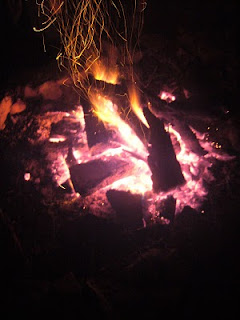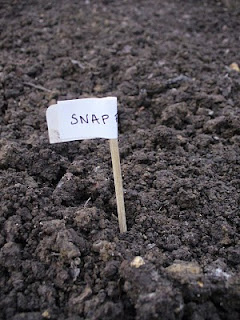 This picture would be a lot better if my camera hadn't decided to eat all of my ones in good light.
This picture would be a lot better if my camera hadn't decided to eat all of my ones in good light.My feminism is rearing its beautiful head again, so if that bothers you, you may want to get off the train now. But maybe you shouldn’t. Feminism is one of those things that’s difficult to talk about because people are so passionate in response to it. What’s funny is that feminism’s central tenet is that women are deserving of full and equal human rights. How is that controversial?
It drives me crazy that women in their twenties don’t even bother to use the title. Their subtext is: “Haven’t we outgrown that yet?” Do women have full and equal human rights? No? Then no.
Feminists are criticized for being two-trick ponies, so to speak, focusing on only two issues: wife beating and abortion. It used to bother even me that feminist organizations seem to focus exclusively on those two issues. I still wish NOW would find a way to be more relevant to today’s young women, but more and more I believe that violence against women and reproductive rights are, in fact, the most crucial issues for today’s women.
They say (they being NPR last week) that the number one thing that reduces poverty worldwide is the education of women. When women are educated, birth rates go down, and so too do infant mortality rates, population, and any number of other social ills. Reproductive rights are, of course, what make religious fundamentalists of all stripes apoplectic. We’re endangering family values!! Family values, of course, meaning a subservient and submissive female population.
And we’re all sick to death of hearing about violence against women. Why is that? Maybe because of its ubiquity? The book that I cannot recommend enough is
The Beauty Myth, by Naomi Wolf. An impeccably researched sociological treatise about the challenges of women in today’s culture, its central theme is that as the power of women in society increases, images of violence towards them increase. Don’t ask me for proof--check out her twenty-page bibliography.
One day last month, I began with breakfast over the New Yorker, reading an interesting short story by Ian McEwen, called “The Use of Poetry.” A quote:
“She confronted the blatant fact of patriarchy and her husband’s role in a network of oppression that extended from the institutions that sustained him as a man, even though he could not acknowledge... how the system that worked in his favor in both trivial and important ways always worked against her. One example was this: he could go to the village pub for a pleasant pint on his own, while she could not do so without being stared at by the locals and made to feel like a whore.”
That’s what I read over breakfast. I did laundry later in the afternoon, and I always flip on the television when I’m folding clothes. The classic movie channel was showing the closing sequence of a movie entitled “The Born Losers” that I had never heard of. In it, the spunky female heroine is beaten until bloody, stripped, humiliated, raped, and ultimately rescued by a big, strong man.
Then, on the way to the airport, I listened to a recording of Janet Evanovich’s
One for the Money, in which a sado-masochistic boxer-murderer rapes one woman with a broken beer bottle and uses intimidation, threats, and physical violence to subdue yet another spunky heroine. Before bed, I read a couple of chapters from
Liberty, a history text about how women during the French Revolution attempted to gain their freedom and failed, all the while being held up as the bare-breasted symbol of Liberty itself.
That was just one day. It made me want to laugh and cry at the same time.
I’m not going to claim innocence here. I like a good episode of Law and Order: SVU as much as the next person. Often guiltily. But I realize there’s something profoundly wrong with images of increasingly disturbing sexual violence overlaid with beaten and dead, often bikini-clad, bodies of women. Just watch the opening sequence of any episode of CSI. On the one hand, these books (Evanovich, Patterson) and shows (Law & Order, Criminal Minds) say that they’re fighting violence against women by “raising our consciousness” and telling their stories from the perspectives of strong women. On the other hand, they’re flooding our minds with the same images over and over. Our subconscious accepts them and files them away under normal.
The concept of rape is the hardest thing for any woman to reconcile with her inborn desire for equality. The idea that her autonomy could be taken away so swiftly, just because of someone else’s superior muscle mass, makes it hard not to live in fear. I choose to believe that rape is not a sexual act at all. It’s an act of violence, pure and simple. It can be an act of violence of a man against the idea of women, or what that woman stands for.
Sometimes I believe that act of violence isn’t aimed at a specific woman at all, but against dominant western culture, against the images of zaftig blondes saturating the world’s air waves. I’ve heard of rapes like that in Thailand, in the Middle East, in the Bahamas. Although no one can be blamed except the rapist himself, I do feel like our larger culture of permissiveness towards sexual violence has to bear some responsibility.
My favorite professor in college claimed that the twentieth century, starting with Freud, united the concepts of eros and thanatos, sex and death, and here, in the 21st, we’re still unable to disentangle them.
If only men could recognize the truth. “Acknowledge the system that worked in his favor in both trivial and important ways,” as McEwan puts it. But men can’t, and most women can’t, either. The male attitude is consistently: “Buck up, li’l camper. It’s not so bad. Aren’t you lucky? You get to be rescued! And you’re so pretty! It doesn’t really bother you, does it?”
Come on. How can it not bother a person to be not fully free? It’s slavery by another name. Until I can go down to the corner pub--Spec-Taters, in my case, the sports bar at the corner--for a pleasant glass of chardonnay without being made to feel like a whore, or without my life being endangered, I am not truly free. As long as there are barriers to the actions which I am capable of taking by myself, I am not truly free.
How do I confront those barriers? I have to storm the barricades. With a pen. With this pen. It’s my only weapon that counts.
 Another extended exposure picture. I think I'll be posting these for a while, because I love them so much.
Another extended exposure picture. I think I'll be posting these for a while, because I love them so much.





















